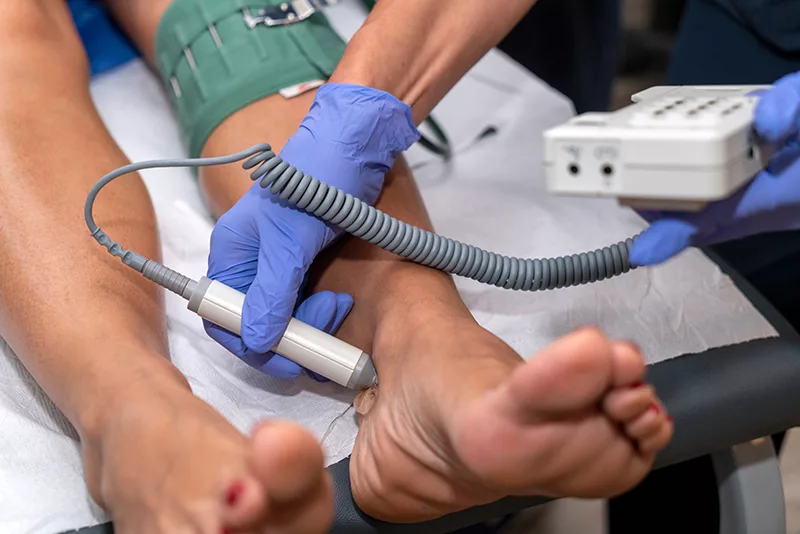
Diabetes is a lifelong disease that disrupts normal glucose (blood sugar) metabolism. Your cells rely on glucose for energy, so maintaining a steady blood glucose level is essential to good health. The pancreatic hormone insulin is crucial to maintaining this balance.
What are the issues?
Complications from poorly treated diabetes include cardiovascular disease, renal failure, nerve damage, and eyesight loss. The key to treating diabetes and reducing its effects on health is regular monitoring, a balanced diet, regular physical exercise, and medication as required.
Additionally, it is true that diabetes might raise the danger of developing PAD. As a result of PAD, blood flow to the legs is reduced because the arteries in the legs become narrow and blocked with fatty deposits. This is where diabetes comes in:
- Blood Sugar Levels: High blood sugar levels caused by diabetes might be harmful to blood vessels. The increased risk of PAD is a direct result of this damage, which makes it more likely that fatty plaques will form in the arteries.
- Inflammation: Chronic inflammation is linked to diabetes. Inflammation aids in the development of atherosclerosis, which causes plaque to narrow and block the arteries.
- Diabetes-related nerve damage may make one’s perception of leg pain or discomfort less acute. Therefore, patients with diabetes may miss the first symptoms of PAD, enabling it to worsen unchecked.
- Complications: In addition to diabetes itself, risk factors for PAD include high blood pressure, high cholesterol, and various complications of the disease.
- Poor Healing: Diabetics may have difficulty recovering from wounds, increasing their risk of foot ulcers and infections that may worsen PAD.
What are the next steps?
Keeping diabetes under control with medication, a nutritious diet, consistent physical activity, and good eating habits will help minimize the risk of peripheral arterial disease (PAD). If you have diabetes, it is highly essential to maintain continuous communication with your cardiologist in order to carefully monitor your vascular health and to take preventative actions in order to safeguard your legs and your entire health.



